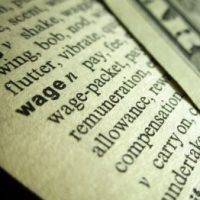Can an Individual Be Liable to a Worker for Wage and Hour Law Violations?

It is a general concept in American law, in any state, that when a company does something wrong, it is the company that gets sued, and pays whatever is owed—not the individual owners or managers or wrongdoers of the company. This is a primary reason that people start companies in the first place.
But what about violations of the Fair Labor Standards Act (FLSA)? Of course, the company may be liable to you for unpaid wages or overtime. But what about the individuals who own, or manage the company—can they also be sued as well, in their individual capacity?
Who is an Employer?
These legal protections that a corporation provides to its individual owners, don’t always extend to FLSA violations.
The wording of the FLSA says that “employers” are the ones liable for violations of the law, and there are cases which say that “employer” doesn’t just mean the company—it means the higher level corporate executives, managers, partners, or other officers.
When is an Individual Liable for FLSA Violations?
You can’t always sue the owner of a company, individually, for a violation for unpaid wages or overtime. Rather, to sue someone individually, you have to show that that person had some hand in the daily management or operation of the company, and in the decisions as to what to pay the employees of the company, or else that they had some say in the decisions that lead to the FLSA violations.
Employees or corporate executives that set company rules, set pay scales, set the rules as to who gets tips, or who determine when employees sign or clock in or out, may be individually liable. Executives or management that supervises people who make these decisions, may also be personally liable to an employee for violations of the FLSA.
Notice that this doesn’t include every single corporate executive. Many executives, for example, a CEO of a larger company, may have no say or input on payment, wage or salary decisions—these may be decisions that are delegated under him or her. Often, it is mid-level executives that have personal liability, as they are more likely to set and enforce company policy on salary and wages.
Its Actual Use of the Power That Matters
Notice that individual liability for FLSA violations does not stem from who technically has the authority or power to make decisions about wages and payment. It’s who actually does that job for the company.
So, even though a managing partner of a company may have the ability to set wages, cut salary, or determine what happens to worker tips, that doesn’t matter—what matters is who actually uses, or wields that power within the company on a regular basis.
That means that smaller companies, where the higher level executives are more likely to be involved in the day to day operations of the company, may have more executives who are personally liable to an unpaid worker, than a larger company would, where the higher level executives are more insulated—they can set wage and salary policy, but as a matter of daily operation, they delegate those tasks.
Are you owed unpaid wages or overtime pay? Contact the San Jose employment lawyers at the Costanzo Law Firm today.
Sources:
casetext.com/case/foday-v-air-check-inc-1
insperity.com/blog/flsa-compliance/
